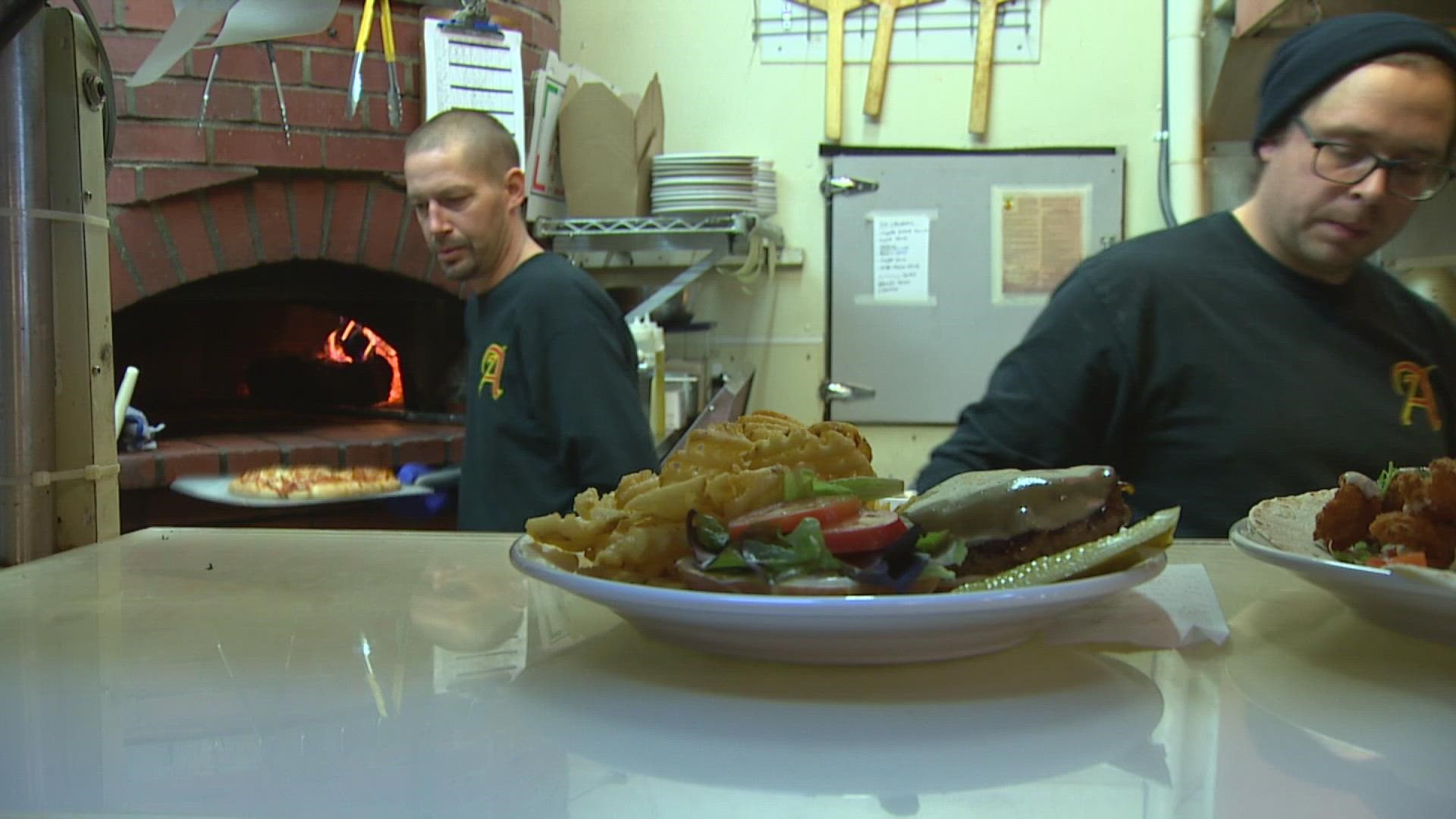OLYMPIA, Wash. — A number of new laws go into effect Jan. 1, 2023, in Washington state, including some that will impact jobs and the environment.
State minimum wage
As of Jan. 1, 2023, Washington state’s minimum wage is $15.74 per hour.
The state minimum wage for 2022 was $14.49 per hour.
Workers 14 or 15 years old may be paid $12.32 per hour.
Some cities, such as Seattle, have their own set minimum wages. Seattle’s minimum wage increases to $18.69 per hour for businesses that employ 501 or more people. For smaller employers, the minimum wage is $18.69 per hour, or $16.50 per hour, depending on whether they pay $2.19 per hour toward medical benefits or the employee earns $2.19 in tips per hour.
Tukwila and SeaTac’s minimum wages will be even higher. Tukwila’s minimum wage starting in July 2023 will be about $18.99. SeaTac’s minimum wage for 2023 is $19.06.
Minimum wage standards have come a long way since "Fight for 15" started back in 2014. The grassroots movement included rallies, protests, and strikes.
Salary information now required on job postings in Washington state
Salary information is now required on job postings in Washington state.
A bill, which went into effect Jan. 1, requires most job postings to include salary information as well as other details. The bill was signed by Gov. Jay Inslee on March 30.
Under SB 7691, a range of hourly wages or annual salaries must be part of the job listings for all businesses with more than 15 employees. Benefit information will also have to be posted.
It is possible for job applicants to negotiate salaries higher than the posted amounts. There are no guidelines on how wide of a range must be offered.
Cap-and-invest program
Beginning Jan. 1, the cap-and-invest program sets a limit on overall carbon emissions in the state, requiring businesses to obtain allowances equal to their covered greenhouse gas emissions. The allowances are obtained through quarterly auctions hosted by the Department of Ecology, or purchased and sold on a secondary market.
The limit will be reduced over time as the state works to lower emissions. The goal is to be 45% below 1990 levels by 2030, 70% below 1990 levels by 2040 and 95% below 1990 levels and net-zero carbon emissions by 2050.
Clean Fuel Standard
The Clean Fuel Standard requires fuel suppliers to gradually reduce carbon intensity of transportation fuels to 20% below 2017 by 2034.
Under the program, fuels will be assessed to determine carbon intensity. Cleaner fuels will generate credits that can be kept or sold to producers of high-carbon fuels. Producers of fuels with carbon intensity above the set standard will be required to buy credits to meet the intensity reduction for that year.
Court fines and restitution
Under a new law, a court may refrain from imposing or relieve an offender of the requirement to pay full or partial restation and accrued interest on restitution to an insurer or state agency – except that owed to the Department of Labor & Industry under the crime victim compensation program.
That would occur if the court finds the offender does not have the current or ability in the future to pay restitution.
ID cards for people who are homeless
A program to provide people who are experiencing homelessness with Washington state identification cards goes into effect Jan. 1. Individuals are eligible for a taxpayer-funded original ID card or renewal card on a one-time basis.
The program is intended to remove barriers for people experiencing homelessness and help them gain access to employment, education, housing, medical treatment and other services.
It is anticipated the program will help more than 15,000 people per year.
Uber driver enhanced benefits
Drivers will get enhanced benefits and the first minimum earnings guarantee for the entire state based on city population. Under the new law, drivers will be paid a minimum of $1.17 to $1.38 per mile and a minimum of $3 to $5.17 per trip.
In a statement, Ramona Prieto with Uber said "We're glad that the overwhelming majority of legislators put the interests of drivers first and passed legislation that will actually make a difference in the lives of workers."

